|
I’m excited to say that Whisky Impressions will have a stand at next week’s Springbank Open Day, on Thursday the 21st of May. The Open Day has been on the go for a good few years now but this year it has been expanded to include the town’s other distilleries, Glen Scotia and Glengyle, and has become the Campbeltown Malts Festival. Hopefully the first of many!
I have to say this is a first for me for a couple of reasons - first time I’ve done a whisky festival in my home town and first time I’ve done a whisky festival where I don't actually have any whisky on my stand! Just t-shirts and prints. Hopefully some of you will come along and say hello, despite the lack of whisky though. I remember one of the very first whisky festivals I went to, just after starting work at Springbank. It was in Vienna and I got talking to some of the guys from the Austrian Whisky Society who had a fantastic collection of old whiskies with them. After the show, when we were all congregating in the hotel bar (as you do), they invited me to join them for a dram of Springbank 1966 Local Barley that they had just opened. I was really touched that this group of people that I had never met before would share such an old, rare, whisky with a young lass just started in the industry. That’s the great thing about whisky though, and thing I love about whisky festivals - it’s all about sharing. I’ve lost count of the number of times since that moment that strangers, friends, competitors or customers have come up to me at a whisky festival, glass in hand and said, ‘taste this, it’s fantastic!’ I don’t know why it is acceptable to taste a stranger’s whisky but it just is. I mean if someone you barely knew come up and offered you a lick of their ice cream you would think they were a total weirdo but somehow with whisky it’s ok. Don’t question it too much ok, just embrace it. I just hope this new trend for ‘investing’ in whisky doesn't stop people sharing their whisky with others; not for profit or gain but just for the simple pleasure in sharing a great dram.
1 Comment
The Great Duty Debate Part 2 - or 'How much difference is that 2% cut really going to make?'28/3/2015 So, the big news this month is that the Chancellor has cut Duty on spirits by a whopping 2%. Well whoop de doo. Don’t get me wrong, this is definitely a step in the right direction but how much difference is it really going to make? Assuming that this Duty cut actually gets passed on to the end consumer (which I very much doubt), that equates to a saving of a grand total of 20 pence, including VAT, on every bottle of spirits you buy. For sake of argument, let’s say you buy a bottle of whisky a week. In just over a year, 58 weeks to be precise, you’ll have saved enough money to buy yourself a bottle of Tesco Value blended whisky. Won’t that be a treat? Seriously though, if saving 20p on a bottle of spirits really makes a difference to your life then you really shouldn't be buying it in the first place! It wasn't just spirit duty that was cut either, beer duty was also cut by a penny a pint. So if you buy 300 pints, you effectively get one free. I don’t really know how much a pint costs these days, it may not be £3, but you get the idea. But maybe I’m looking at this the wrong way. Maybe it’s more about the wider political and economic implications rather than how it affects the end consumer - a tacit agreement by the government that alcohol duty is, in fact, too high? Or a cynical plot to win over voters with a crowd pleasing tax cut in a General Election year? I know which one I’m going for! The SWA is certainly hailing it as a historic move though and a ‘significant boost to a home-grown industry’. When you consider that there have only ever been five spirits duty cuts since the landmark 1823 Excise Act then this duty cut, small as it is, certainly does seem to take on a bit more importance. It’s when you look at alcohol duty overall though, and not just spirits duty, that you realise just how highly taxed spirits are compared to other alcoholic drinks. I hadn't realised quite how much of a difference there was until I looked it up on the HMRC website. And it’s not just the levels of duty that are different either, it’s also the way the duty is calculated. For example; spirits and beer are taxed according to alcohol strength (litres of pure alcohol) whereas cider and wine are both taxed by volume of product (albeit with lower or higher duty rates for very low or very high alcohol examples of these). The end result is wildly different duty receipts depending on what you are buying. I’ve done another infographic (starting to like these things) to show just how much disparity there is! For those of you that like concrete figures, the Duty per litre on the examples I have used is;
Spirits at 40%vol £11.06 Beer at 4% vol £0.73 Cider at 5% vol £0.39 Wine at 14% vol £2.73 For the purposes of comparison, if everything was taxed the same as spirits, the figures would be; Spirits at 40%vol £11.06 Beer at 4% vol £1.10 Cider at 5% vol £1.38 Wine at 14% vol £3.87 Bit of a difference, isn't it? I think it’s time for a radical overhaul of the duty system. I tend to agree with the SWA that the fairest way of doing things is to have one duty rate based on the litres of pure alcohol in the product. After all, alcohol is alcohol, right? Especially in these days of responsible drinking and recommended units. Why should one unit of alcohol consumed as whisky be treated any differently from one of beer or cider or wine? You could always have reduced duty rates for small scale producers (as they already do for beer) to help small or new producers, who don’t have the same economies of scale for their raw materials or production costs, compete on a more level playing field than the big boys. Surely this would do more to stimulate the economy and support home grown industry than a token 2% duty cut, welcome as it is? It’s a general election year again so that means lots of politicians trying to convince us to vote for them by using catchy soundbites to either a) blow their own trumpet or b) slag of the opposition. One that I have seen quite a lot recently is that 80% of the price of a bottle of whisky is tax. Now, that is some statement! Guaranteed to cause indignation in even the most moderate whisky drinker and, in the wake of the referendum, generate quite a lot of publicity since it affects one of Scotland’s most iconic products. Now, I don't particularly want to get into a political discussion about the excise rate on spirits, but it did get me thinking. My first thought was, ‘what a load of b*llocks!’. I happen to know that duty on a bottle of whisky is about £8 (depending on the alcohol strength, but more on that later) and when was the last time you were able to buy a bottle of whisky for a tenner?! Or would want to for that matter?! My second thought was, oh my god, maybe most people in the UK do drink £10 a bottle blend and I’ve turned into such a whisky snob that I just don’t realise it? A quick peruse of the shelves in my local supermarket and browse online though reassures me that that is not the case. Most well-known branded blends appear to be around the £17 - £18 per bottle mark, while the cheapest ‘value’ whisky I could find was £11.50. And that’s where it gets frightening. Why? I hear you ask. Well, for ease of maths, we’ll round the £11.50 up to £12. That £12 includes VAT, so take off £2 for VAT, and we’re left with £9.50. Now take off duty, which on a 70cl bottle at 40% is £7.90 and that leaves us with a grand total of £2.10. Two pound 10p which needs to cover the retailer’s margin, the producer’s margin, the cost of the bottle, label, capsule, outer case, bottling, transport, storage, and…am I forgetting something? Oh yeah, the whisky itself! Now do you see why it is frightening? Now, contrary to what some politicians and lobbyists would have you believe, Excise Duty in the UK is calculated on the alcohol content of the product, not the value, so if you spend a bit more on per bottle then things get a lot less scary and a lot more encouraging as a much higher proportion of your hard earned cash is actually going towards the whisky itself for your liquid enjoyment rather than to the taxman. If you spend £36 quid for example, then you have a massive £22.10 left once duty and vat have been taken out the equation. Not having anything better to do on a rainy Thursday afternoon, I did some sums and created this handy infographic (since they seem to be all the rage these days) to illustrate my point. For comparison purposes all costs are based on a 70cl bottle at 40% vol. The main thing to take away from this? You are perfectly justified in spending more on whisky! The more expensive it is, the higher proportion of your cash you are spending on the actual whisky. I imagine there comes a point though when the tax is pretty negligible so don't go giving yourself carte blanche to spend thousands of pounds per bottle of whisky just on my say so!
The other thing to take away is that while total tax (duty & VAT) does indeed make up over 80% of the cost of the cheapest bottle on the market, it is very misleading to imply that this is the case across the board. It's not. But then, 'The tax you pay on a bottle of whisky depends on the alcohol strength and the price of the bottle and can vary from around 82.5% per bottle to about 20%' isn't quite as catchy a soundbite is it? Some actual facts, rather than my opinions/conclusions follow. You may or may not wish to read them. The duty rate on spirits in the UK is currently £28.22 per litre of pure alcohol. For a 70cl bottle, this equates to £7.90 at 40%vol, £9.08 at 46% vol or £11.26 at 57% vol. If you wish to work out how much duty is in your bottle, the calculation is £28.22 x volume of bottle in litres x alcohol percentage expressed as a decimal. This duty rate applies to all spirits, not just Scotch Whisky. Whether you are drinking Scotch Whisky, English Gin, French Cognac, Russian Vodka or Mexican Tequila, they are all taxed at the same rate. No one spirit is being unfairly targeted. UK VAT is currently 20%. To calculate the price before VAT you divide by 6. 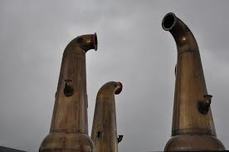 Hmm, let’s see, swans? Where can we go with this? Well, the Diageo Flora and Fauna range could be a good start - their bottlings of Linkwood featured a swan on the label. Alternatively, you could try a wee Penderyn Welsh Whisky since the Master Blender there is a certain Jim Swan. It seems that after having no links at all to whiskies for the first 4 days of this countdown, I now can’t get away from it! Let’s have a look at the history then, see if that gives us any alternatives. According to Celtic and British mythology lost loved ones would come back as swans, which had gold or silver chains around their neck to symbolise their enchantment. Swan necks… that’s taken us back to whisky again hasn’t it! Or spirits anyway. I’m just going to have to go with the whisky angle again on this one as the link to swan necks seems too good to ignore. Swan necks then are a feature on all copper pot stills. One of the largest manufacturers of copper pot stills is Forsyths in Rothes, in the heart of Speyside. Part of the Forsyths plant is on the site of what was, until relatively recently, the Caperdonich distillery so for Day 7, let’s go for Caperdonich*! (* Another closed distillery, so if you are struggling to get hold of some, you could always go for some Glen Grant, since Caperdonich was originally known as Glen Grant 2) Day 6 and we are still on the bird theme, this time geese. The obvious choice for today would be Grey Goose vodka, produced in the Cognac region of France. Bit too obvious though, isn't it. I really feel I need to make you work a bit harder for your tenuous links drink. As well as being a very tasty addition to a traditional Christmas dinner, geese were also honoured for their protective services. (Have you ever been stuck in a field with a load of geese when they all start running towards you? Scary. And noisy. I can see why they were effective protectors) So, on the subject of protective geese - Dumbarton distillery, near Glasgow, was once renowned for having a gaggle of ‘guard geese’ as its site security. There were actually three different types of whisky produced on the one site; Dumbarton grain, Lomond and Inverleven single malt (The Lomond still is now at Bruichladdich). The distillery closed in 2003, but you can still find bottles by the likes of William Cadenhead*, Scotland’s Oldest Independent Bottler. Day 6 then, get yourself a dram of Dumbarton. Might take a bit a tracking down but hopefully worth the effort. *Yes, this is a shameless plug for my husband’s employer. Other indy bottlings are of course available too! On the sixth Day of Christmas, my true love sent to me;
Six Geese a Laying Five Golden Rings Four Calling Birds Three French Hens Two Turtle Doves and a Partridge in a Pear Tree On the fifth day of Christmas my true love sent to me Five Gold Rings Four Calling Birds, Three French Hens, Two Turtle Doves And a Partridge in a Pear Tree. At first glance, the gift of 5 gold rings seems very extravagant after all the birds gifted on previous days, but apparently the 5 gold rings actually referred to ring necked birds, like a pheasant, which were considered quite exotic at the time of writing. Good to know that the gift giving ‘True Love’ in the song finds a theme he likes and then sticks to it! 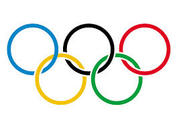 So, what are we going to drink today to link in with the Five Gold Rings? Goldschlager springs immediately to mind - it’s even got real gold flakes in it - but doesn’t really fit with the rings. Let’s see…rings…There are 5 Olympic Rings and the aim of the Olympic Games is to win gold medals. The Olympic Games originated in Greece so maybe we should be looking to Greece for inspiration? Possibly the most well known Greek national drink is ouzo (as anyone who has been there on holiday can probably attest to, and, if you are anything like us, probably has a dusty bottle of it at the back of a cupboard somewhere to prove it) but we’ve already had raki as one of our tenuous links drinks so I think I’ll pass on that one.
|
AuthorWhisky Impressions is run by Kate Watt. Previously at Springbank and then Glenfarclas, I now design some whisky related stuff and write about it, and anything else that takes my fancy, on this blog. Archives
January 2019
Categories
All
|
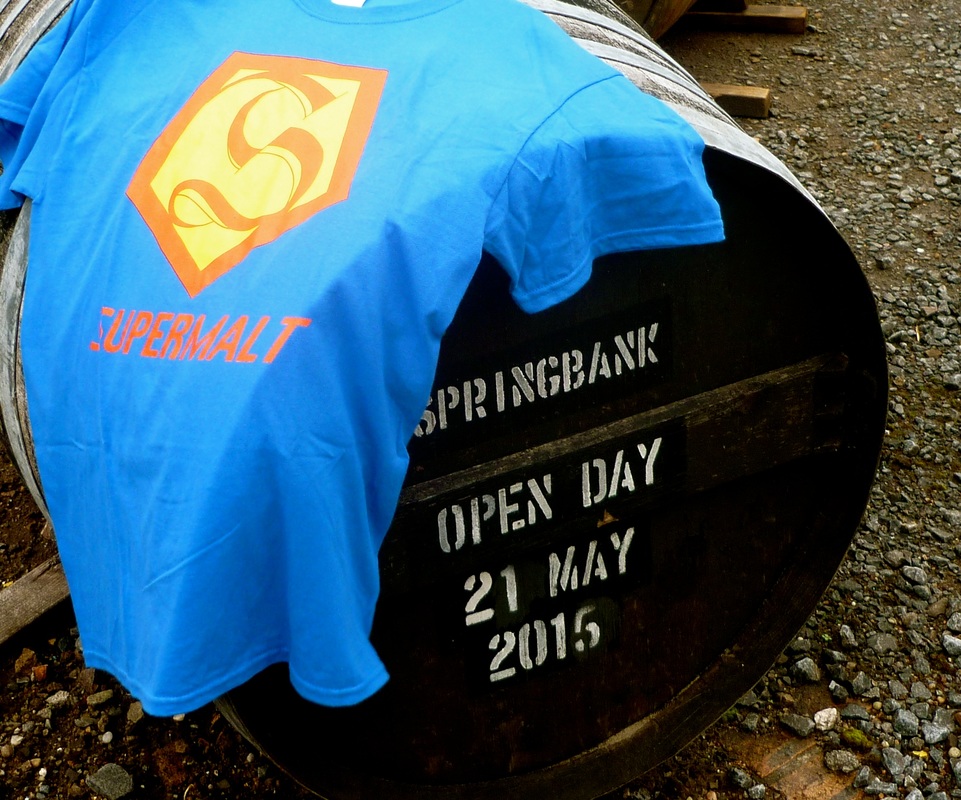
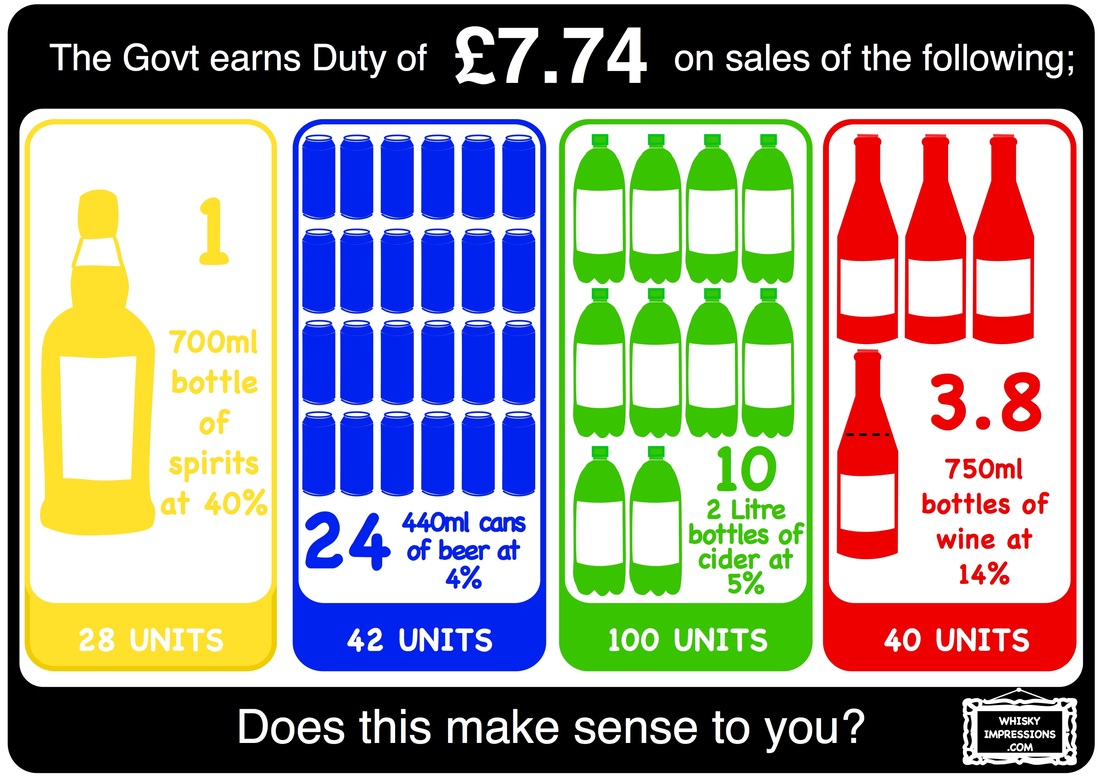
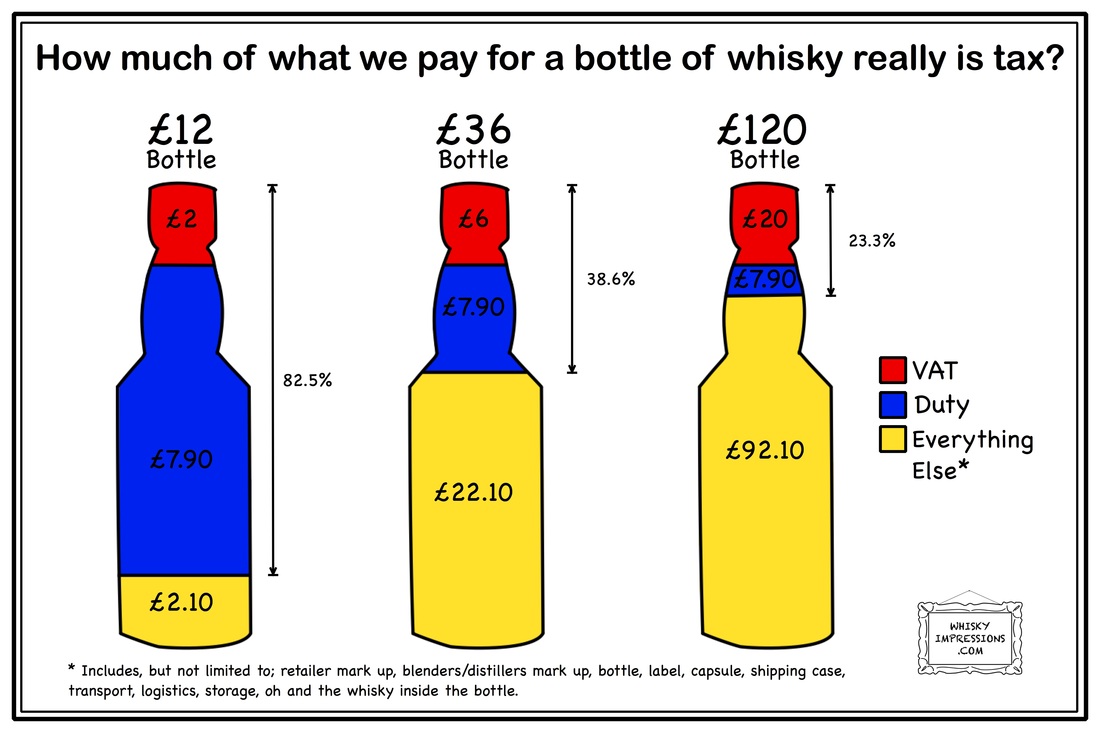

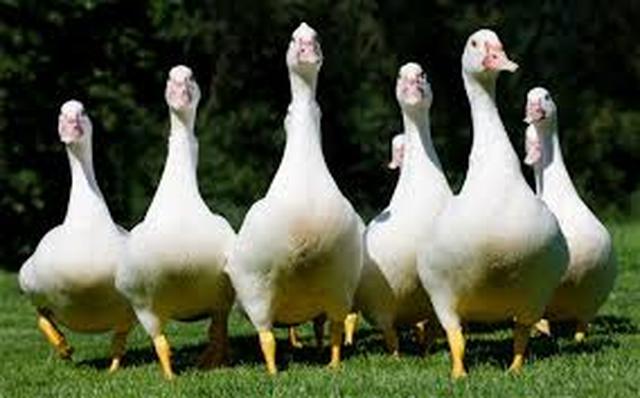
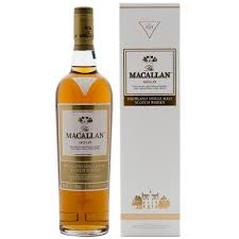
 RSS Feed
RSS Feed
